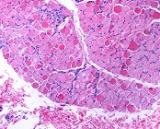The Pandemic-Related Transformation of Behavioral Health Care Delivery: 2022 and Beyond

In this activity, participants will explore the pandemic’s impacts on individuals’ mental health, including the increasing risks for, and prevalence of, stress, anxiety and post-traumatic stress disorder, especially for special populations such as front-line personnel (i.e., health care professionals (HCPs), teachers and funeral directors), children and the millennial and geriatric populations. In addition, participants will review the multifaceted effects of the pandemic on the behavioral health care delivery system, specifically regarding access to care, delivery of services and digital health utilization. The implications for current and future utilization of delivery modalities, such as telehealth, behavioral health coaching and other mental health care management strategies will be discussed, taking into consideration the behavioral health care concerns that have emerged during this transitional time in response to the transforming health care landscape and the population’s evolving mental health care needs.
Category
- Behavioral health
Format
- Webcasts
Credits
- 1.00 ACPE - Pharmacists
- 1.00 ACPE - Pharmacy Technicians
- 1.00 AMA - Physicians
- 1.00 ANCC - Nurses
- 1.00 APA - Psychologists
- 1.00 Attendance - General Attendance
- 1.00 ASWB - Social Workers
Supporting Resiliency in Older Adults: A Focus on Life’s Purpose

This activity will provide an overview of the role of resilience and PIL, examine characteristics associated with resilience and PIL and describe intervention strategies to promote resilience and successful aging in older adults.
Category
- Behavioral health
- Health equity
- Older adults
Format
- Webcasts
Credits
- 1.00 ACPE - Pharmacists
- 1.00 ACPE - Pharmacy Technicians
- 1.00 AMA - Physicians
- 1.00 ANCC - Nurses
- 1.00 APA - Psychologists
- 1.00 Attendance - General Attendance
- 1.00 CCMC - General - Case Managers
- 1.00 ASWB - Social Workers
Medical Weight Loss Overview

This activity will provide an overview of obesity as a complex and chronic disease, will review its classification, and will examine the factors that cause weight loss to be so challenging to sustain. Participants will also explore how the aspects of the medical weight loss (MWL) program are structured to promote sustainability.
Category
- Disease management
- Wellness
Format
- Webcasts
Credits
- 1.00 ACPE - Pharmacists
- 1.00 ACPE - Pharmacy Technicians
- 1.00 AMA - Physicians
- 1.00 ANCC - Nurses
- 1.00 Attendance - General Attendance
- 1.00 CDR - Dietitians
Beyond the Video Visit: A Complete Guide to Digital Health Modalities

This activity will explore a variety of digital health modalities and help learners understand the broad landscape of digital medicine and beyond. It will discuss the potential for these modalities to enhance health care delivery, offer increased access to health care and ultimately improve patient outcomes.
Category
- Digital health
Format
- Webcasts
Credits
- 1.00 ACPE - Pharmacists
- 1.00 ACPE - Pharmacy Technicians
- 1.00 AMA - Physicians
- 1.00 ANCC - Nurses
- 1.00 APA - Psychologists
- 1.00 Attendance - General Attendance
- 1.00 CCMC - General - Case Managers
- 1.00 ASWB - Social Workers
Pharmacotherapy Principles and Considerations for Weight Management

This activity will review the rationale, mechanisms of action, and indications for current FDA-approved anti-obesity pharmacotherapies, as well as explore medications that have weight-loss-promoting potential.
Category
- Disease management
- Wellness
Format
- Webcasts
Credits
- 1.00 ACPE - Pharmacists
- 1.00 ACPE - Pharmacy Technicians
- 1.00 AMA - Physicians
- 1.00 ANCC - Nurses
- 1.00 Attendance - General Attendance
- 1.00 CDR - Dietitians
Duchenne Muscular Dystrophy: Utilizing Personalized Treatments and Addressing Health

This activity will discuss emerging therapies for DMD and the importance of incorporating a personalized interprofessional care plan, along with the role of health disparities and how these impacts access to care and outcomes for these individuals.
Category
- Disease management
- Health equity
- Rare diseases
Format
- Webcasts
Credits
- 1.00 ACPE - Pharmacists
- 1.00 ACPE - Pharmacy Technicians
- 1.00 AMA - Physicians
- 1.00 ANCC - Nurses
- 1.00 APA - Psychologists
- 1.00 Attendance - General Attendance
- 1.00 CCMC - General - Case Managers
- 1.00 ASWB - Social Workers
Supratentorial Matters Associated with Obesity

This activity focuses on the physiological processes that occur in obesity and cause fundamental changes in neurocircuitry that impact mental and physical health, sleep, aging, and the experience of pain. Participants will examine the cycle of obesity and how bias, stigma, discrimination, and adverse childhood experiences (ACEs) negatively contribute to these mental and physical effects.
Category
- Disease management
- Wellness
Format
- Webcasts
Credits
- 1.00 ACPE - Pharmacists
- 1.00 ACPE - Pharmacy Technicians
- 1.00 AMA - Physicians
- 1.00 ANCC - Nurses
- 1.00 Attendance - General Attendance
- 1.00 CDR - Dietitians
Providing Quality Care for Adults With Intellectual and Developmental Disabilities

This activity will provide learners with an overview of clinical considerations in adults with IDD and improve communication skills and practices that can better guide treatment choices to address the specific needs of these individuals. Learners will take a closer look at existing bias, stigma and discrimination toward these individuals and learn strategies to address these issues in practice. Lastly, the value of improved interprofessional team collaboration between health care professionals (HCPs), caregivers and direct support professionals will be discussed.
Category
- Intellectual and developmental disabilities
Format
- Webcasts
Credits
- 2.00 ACPE - Pharmacists
- 2.00 ACPE - Pharmacy Technicians
- 2.00 AMA - Physicians
- 2.00 ANCC - Nurses
- 2.00 APA - Psychologists
- 2.00 Attendance - General Attendance
- 2.00 CCMC - General - Case Managers
- 2.00 CDR - Dietitians
- 2.00 COPE - Optometrists
- 2.00 ASWB - Social Workers
Unveiling Bipolar Disorder in the Pediatric Population

This activity will provide participants with a better understanding of the prevalence, clinical manifestations, and differential diagnoses for bipolar disorder in children and adolescents and will analyze the common childhood presentations of individuals later diagnosed with bipolar disorder as adults. The expert presenter will also review lessons learned in her own experience treating pediatric patients with bipolar disorder to provide insight into the diagnostic and therapeutic processes that can effectively treat this disorder in affected individuals.
Category
- Behavioral health
- Pediatrics
Format
- Webcasts
Credits
- 1.00 AMA - Physicians
- 1.00 ANCC - Nurses
- 1.00 APA - Psychologists
- 1.00 Attendance - General Attendance
- 1.00 ASWB - Social Workers
Perinatal Substance Use Disorder: Focus on Postpartum Period

Identification and early intervention for pregnant and postpartum women with substance-use disorders (SUD) are critical for optimizing maternal and neonatal health and wellbeing. The risk factors, common barriers to treatment, evidence-based practices around screening and interventions, and the framework for collaborative strategies to support pregnant and postpartum women with SUD will be discussed.
Category
- Behavioral health
Format
- Webcasts
Credits
- 1.00 ACPE - Pharmacists
- 1.00 ACPE - Pharmacy Technicians
- 1.00 AMA - Physicians
- 1.00 ANCC - Nurses
- 1.00 APA - Psychologists
- 1.00 Attendance - General Attendance
- 1.00 ASWB - Social Workers

 Facebook
Facebook Twitter
Twitter LinkedIn
LinkedIn Forward
Forward